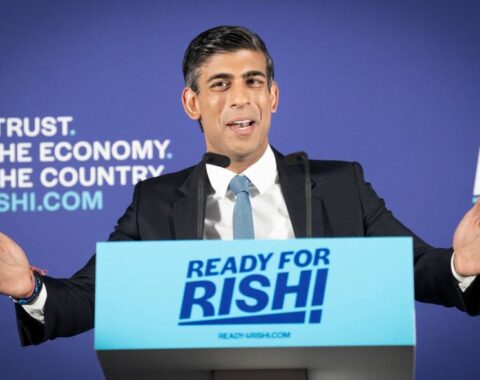Article Published in Lex Talk World.
The High Courts in India possesses extraordinary powers under the writ jurisdiction under Article 226 of the Constitution of India for enforcement of fundamental as well as legal rights. These rights are subject to self- inflicted constraints about the existence of an alternative remedy such as approaching the Tribunals in cases of Special Acts where the Courts have refused to intervene even on violation of a legal right or violation of the principles of natural justice. Whereas, on the other hand, the Supreme Court has acknowledged time and again that the existence of an alternative remedy shall not be an absolute bar to the exercise of Writ jurisdiction by the High Court. Taking reference to a case, in the matter of Whirlpool Corporation vs. Registrar of Trade Marks, the question which arose pertained to the maintainability of a writ when an alternative remedy before a Registrar already existed under the Trade Marks Act, 1940 when the Supreme Court laid down the three parameters concerning the exception to the general rule of an alternative remedy which pertained to enforcement of a fundamental right, violation of the principle of natural justice and where the proceedings are whole without jurisdiction or vires of the Act is challenged.
The divergent decisions given by the Hon’ble Supreme Court and various High Courts makes every legal practitioner carefully assess his or her chances before filing a Writ Petition especially when a Special Act ensues such as the Insolvency and Bankruptcy Code, 2016, Arbitration and Conciliation Act 1996, Prevention of Money Laundering Act, 2003, Securitization and Reconstruction of Financial Assets and Enforcement of Security Interest Act, 2002 etc. where the respective Tribunals such as the NCLT, Arbitration Tribunal, ATPLMA, DRT etc, have especially been constituted to hear the disputes about the respective Acts which makes the existence of an alternative remedy even more conspicuous since the Special Acts not only provide a piece of machinery for redressal, but they also provide a mechanism for appeals.
The captivating question which emerges is why the litigants prefer trying their luck under a Writ Court instead of approaching a Tribunal and avail the available alternative remedy? This is because the uncertainty concerning the success of a Writ Petition does not deter the litigants from using the most powerful tool to take their chance to avail a quick and efficacious remedy. Not only this, but the Writ Courts can set the stage for the most dramatic reversals in litigation as it has the power to stop litigation in its track until an important legal issue is resolved. To understand the “extra- ordinary” circumstances where a Writ court has intervened, we need to divulge and look closely at some of the decisions given by the Writ Courts while intervening in such situations.
The grey area under the SARFAESI Act is astonishing as whenever a Writ Petition is filed to stop SARFAESI proceedings by challenging demand notices issued under Section 13 (2), the Writ Court does not interfere. The Hon’ble High Court of Kerela in Sunitha Roy v. Canara Bank dismissed the Writ Petition stating that the petitioners have the most efficacious remedy of challenging demand notices under Section 13(2) of the SARFAESI Act before the Debt Recovery Tribunal.
What the Kerela High Court failed to observe is that one can only approach the Debts Recovery Tribunal under Section 17 of the Act after the notice of possession under Section 13 (4) is issued against the borrower.
The Supreme Court in Mardia Chemicals v. Union of India & Ors. has observed that the remedy of appeal available under the Act as contained in Section 17 can be availed only after measures have already been taken by the secured creditor under Sub- section (4) of Section 13 of the Act which includes the sale of the secured assets, taking over its management and all transferable rights thereto which means that the borrower is left remediless against the notice issued under 13 (2) the Act and the reply of the representation against the notice under Section 13 (3 A) of the Act. The indulgence of a Writ Court in case of a violation of a legal right in such a situation is of utmost importance to safeguard the rights of the natural and legal persons.
Similarly, the Insolvency and Bankruptcy Code, 2016 is also treated as a ‘complete code in itself which is an express recognition of its self- sufficiency. However, as a statutory body, the NCLT has limited powers of judicial review owing to its restrictive jurisdiction. Orders passed by statutory or quasi- judicial bodies are considered to be a part of public law, which are outside the realm of the NCLT.
In Embassy Property Developments v., the State of Karnataka, the Supreme Court recognized the High Court’ s exercise of its powers under Article 226 to intervene when the NCLT lacked jurisdiction. Further, i t distinguished this from a mere wrongful exercise of its recognized jurisdiction, which would not warrant any interference. This would include circumstances when the court adjudicated upon an incorrect question of law or applied an unsuitable test to arrive at its conclusion.
An aspect of this conversation is also highlighted by the dispute resolution structure under the Prevention of Money Laundering Act, 2002 (PMLA). Section 5 (1) of the Act provides for the provisional attachment of property of offenders who have committed a scheduled offence. Since this is a coercive measure, i ts essence is immediacy, which precludes the possibility of providing the offender with notice or a hearing before the order is passed.
In these cases, a post facto hearing is conducted under Section 8 of the Act. Further, the High Court is a court of the second appeal under Section 42 of the Act. In Gautam Khaitan v. Union of India, the Court considered the maintainability of a writ petition under Article 226 in light of Section 42. I t held that a Court may intervene even in the presence of a statutory remedy in two situations – where there is a lack of jurisdiction, or where there is a breach of the principles of natural justice. Further, in this case, the burden of demonstrating the absence of jurisdiction is on the aggrieved party.
The Arbitration and Conciliation Act, 1996 is an interesting study, especially due to its jurisdictional overlap with several other special laws and relief procedures under the Civil Procedure Code.
In such cases, the Courts have routinely considered the appealability of the orders passed by statutory bodies to decide if interference under Article 226 is warranted. This was laid down in NN Global Mercantile v. Indo Unique Flame Ltd, where an order of the Commercial Courts refusing to refer the parties to arbitration could not be challenged owing to its appealability. This judgment reversed the holdings of the Nagpur Bench of the Bombay High Court only on the grounds of maintainability.
The High Courts have been granted an extraordinary power under Article 226 to protect the rights and interests of the parties so that i t can exercise judicial discretion in order to provide safeguards against any violation of a legal or a fundamental right.
The maintainability of a Writ Petition on the availability of an alternative remedy are only considered in “extra- ordinary” circumstances because their review is entirely discretionary and i t inevitably allows a party to “cut in line” ahead of those who are involved in traditional appeals. Even i f there is a mechanism for redressal under the Special Act, the High Court needs to examine any unprecedented extraordinary situation where i f a certain relief is not granted, there could be a serious violation of a legal right or the principles of natural justice. The High Courts have been granted this “extraordinary” power in order to prevent injustice to any of party even i f i t means going beyond the technicality of the availability of an alternative remedy.
It is pertinent to note the Nagpur bench’s flexible construction of the Court’ s powers under Article 226, stating that there is no absolute bar to the jurisdiction of the Court i f the principles laid down in Surya Dev Rai v. Ram Chander Rai support such an exercise.
https://www.vchambers.in/wp-content/uploads/2022/11/Magazine-cover-story-LexTalk-world.pdf





